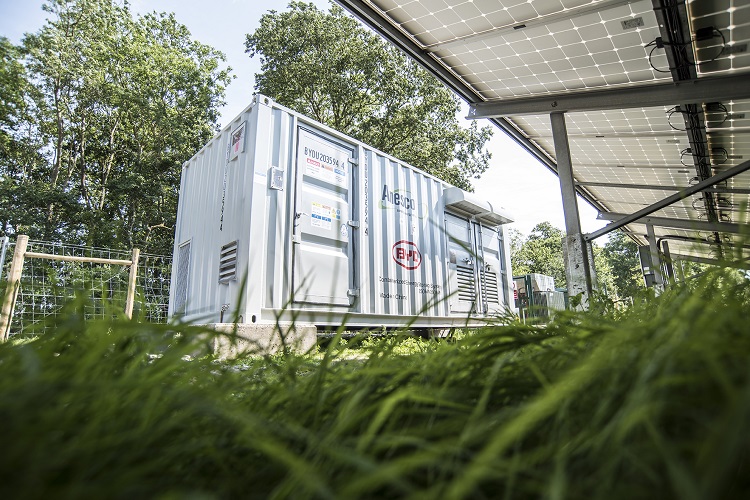An acceleration of the 70% cost reduction seen in lithium-ion prices since 2012 will drive global uptake of energy storage over the next few years, finds a new report by IHS Markit.
The analysts forecast prices for lithium-ion battery modules to tumble below $200/kWh by 2019, enabling previously “uneconomical applications” such as the colocation of battery storage and solar PV to surge.
This sharp and sustained cost reduction will help cement lithium-ion as the battery chemistry of choice in all energy storage markets, including grid-scale behind-the-meter storage, residential storage, and micro-grids.
By 2025, the world’s base of cumulative installed storage capacity will reach 52 GW, IHS Markit says, up from around 4 GW today. Last year, 1.3 GW of grid-connected storage was deployed globally, and this rate is poised to accelerate to 4.7 GW a year by 2020, and 8.8 GW annually by 2025.
In monetary terms, last year’s $1.5 billion annual revenue will be dwarfed come 2025 – a CAGR of 16% will push annual revenue to more than $7 billion by that date as utility-scale storage comes to dominate the market: by 2020, behind-the-meter batteries will account for more than half of all installs, forecast the analysts.
Popular content
Other trends to look out for include the growing dominance of the U.S. storage market, which will enjoy a CAGR of 21% between now and 2025 while surpassing 1.2 GW of annual deployment as early as 2020; Australia, Japan, Germany, the U.K. and South Korea will be the next biggest storage markets.
System aggregation and demand response programs in these markets will drive value stacking and improved economics, with supportive subsidy policies boosting large-scale storage deployment particularly in Germany, Japan, California and South Korea.
In Australia, a combination of generous public tenders and large solar+storage projects are already boosting the utility-scale storage market, not least following sizable project announcements by Tesla and Lyon Group.
“For many larger players entering the industry energy storage is seen as a strategic investment with significant long-term growth potential, as storage will become a pivotal ingredient in our future energy mix,” Julian Jansen, senior analyst, solar and energy storage, IHS Markit, told pv magazine. “Especially energy suppliers/utilities whose traditional business model is under threat energy storage development is part of a new strategy tying together a decentralised, digitalised and flexible demand and generation infrastructure required for the future.”
This content is protected by copyright and may not be reused. If you want to cooperate with us and would like to reuse some of our content, please contact: editors@pv-magazine.com.


Didn’t Elon just say Tesla’s all in battery costs are at $192/kW!?